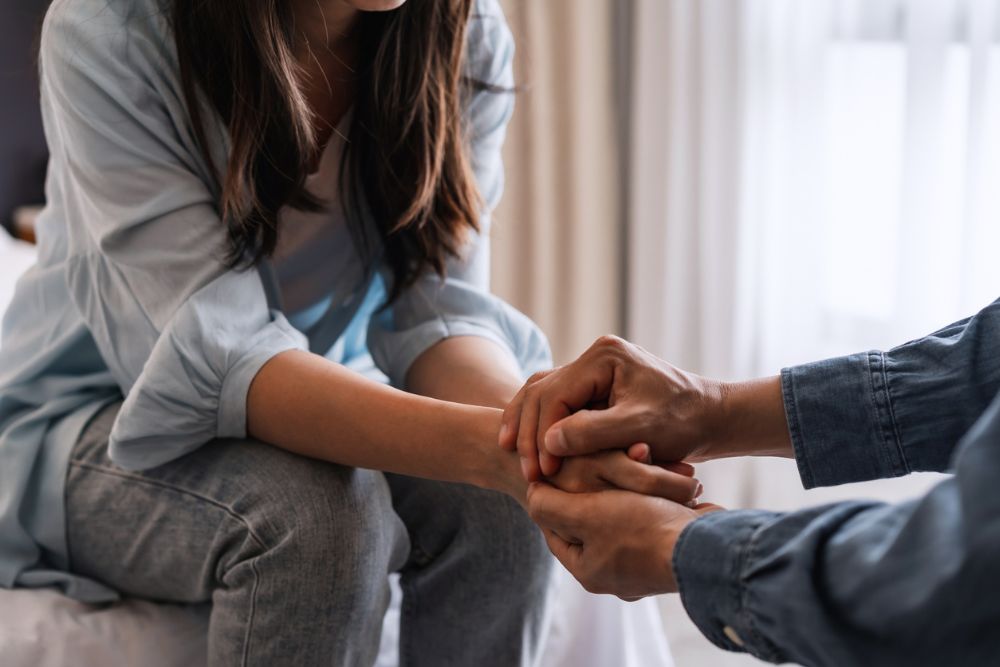People with mental health or substance use disorders are also more likely to experience unhealthy relationships. This may include toxic relationships with family, friends, or intimate partners. Building a solid life in recovery may require healing and or ending these relationships, but how do you know which to do? At Palms Behavioral Health in Harlingen, Texas, we help adolescents, adults, and older adults to manage mental health struggles and rebuild lives that promote long-term well-being. We know how hard it can be to decide when to continue trying to heal a difficult relationship and when to let go.
What Unhealthy Relationships Look Like
It is important to recognize that having unhealthy relationship dynamics does not mean you are a bad person. Even kind people with good intentions can sometimes find themselves in relationships that are not good for them, and these relationships can trap them into unhealthy patterns of behavior. An example of this that is very common in people who struggle with substance misuse and mental illness is codependency. Healthy relationships have partners who are equals, who manage their own responsibilities and support each other, but a co-dependent relationship often features:
- A martyr who facilitates manipulative, abusive, or addictive behaviors by lying for the other partner, covering up their poor choices, and making excessive personal sacrifices, so that the other person doesn’t experience the consequences of their actions.
- Poor boundaries that make it difficult to say no.
- Participants who grew up in households with parents who were emotionally unavailable due to unmanaged substance use or mental illness.
- A person who believes they should be able to heal the other person through the power of their love.
Beyond codependency, other signs of a toxic relationship could include:
- Lack of trust
- Attachment anxiety
- Jealousy
- Violence
- Controlling behaviors
- Neither of you is a better person because the other is in your life, and you may even make each other worse
- One or both of you routinely point out flaws in the other person
- It feels like your emotions and successes don’t really matter
- You can’t count on them in a crisis
- You sometimes avoid them
- They are a frequent source of negative surprises
- They think you’re lucky to have them, but not the other way around
Choices for Managing Unhealthy Relationships
Once you recognize that a relationship is unhealthy, you have some options for how to proceed. You may be able to heal a relationship that only meets a couple of the criteria above, particularly if the other person is willing to meet you halfway in making changes. Therapy could help you establish what changes might be most helpful and to practice setting and respecting boundaries. If there are a lot of red flags, however, or the other person doesn’t seem willing to make changes, too, you may only have the options to:
- Continue to endure the harm you’ve been experiencing – this is not likely to benefit your mental health or addiction recovery, because it will probably drain your energy and distract from your healing, but if you do not feel safe ending the relationship at this time, you might decide it is best to continue as you have, at least for now.
- Distance yourself from the person – sometimes, getting a little space can give you and the other person a chance to grow and recognize the need to make changes. This option may be especially appealing when the other person is someone you are likely to run into at work, family gatherings, or activities with a larger social circle.
- End the relationship – when a relationship doesn’t show much potential for healing, the other person cannot accept the need for change. If you can safely escape the relationship, you may decide it’s time to remove the person from your life. You can improve the chances of successfully exiting a violent relationship by:
- Getting professional support
- Saving up some money secretly to fund your escape
- Documenting abusive behaviors
- Getting a no-contact order
- Confiding in trustworthy people who can help you to build a new life
- Seeking out counseling
- Finding a support group
- Increasing your self-care
At Palms Behavioral Health, we know that it can be scary to let go of relationships, even ones that we recognize are a danger to our own well-being. We help our patients to construct healthy support systems that will make it easier for them to continue having social connections even after they let go of a toxic relationship and to develop themselves, so that they will be less likely to experience toxic relationships in the future.






